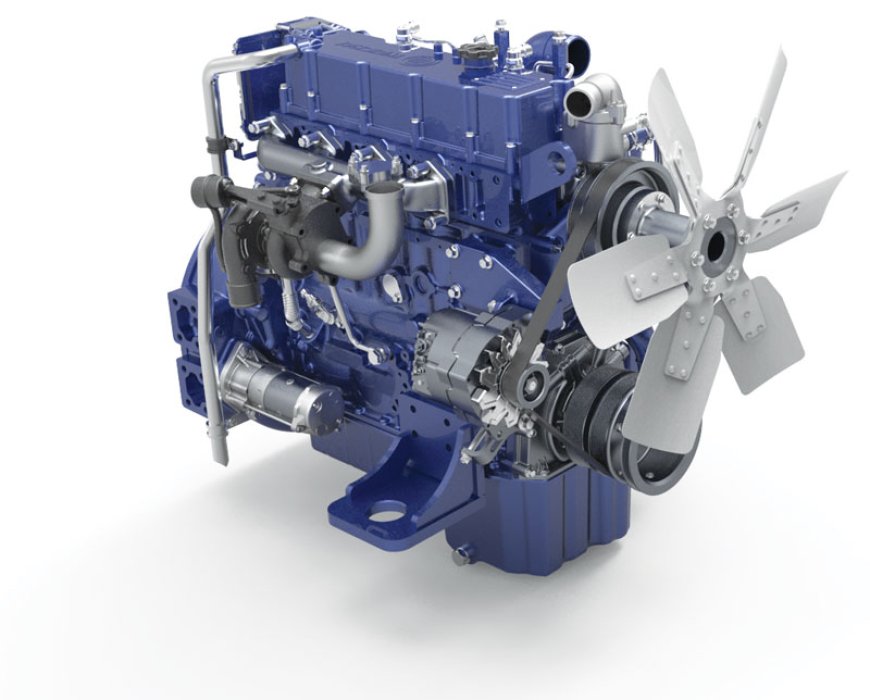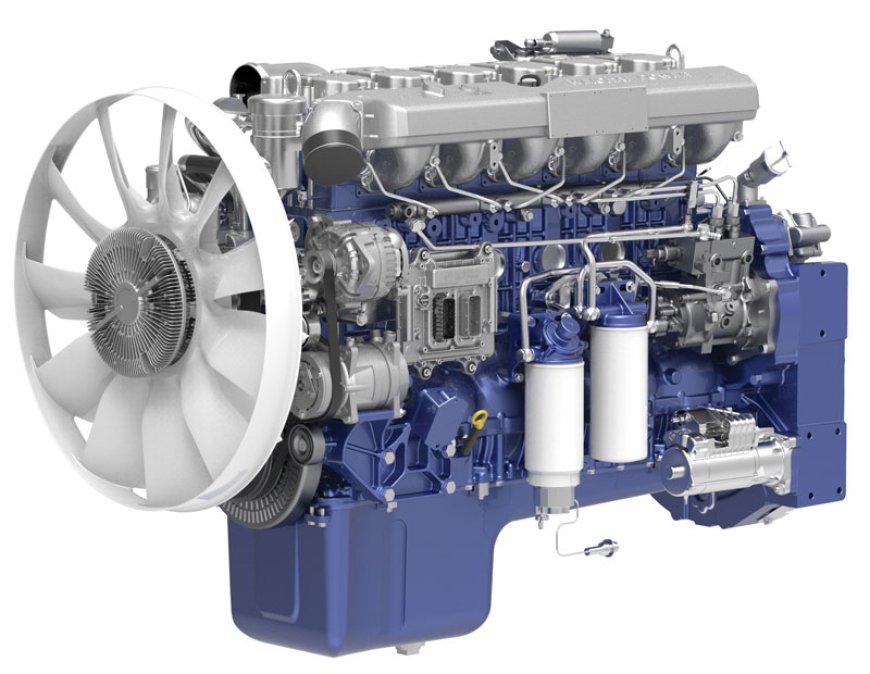Engines play a critical role in the overall environmental impact of various operations.

Gurunath Kulkarni,
What are the current technology trends for engines used in infrastructure equipment?
India as a nation is moving very swiftly & sequentially towards reducing carbon emission by implementing numerous pollution control measures to vehicles, construction machineries and backup power generation systems running on diesel, gasoline & natural-gas engines.
We, at Weichai, have embraced and completely aligned our product portfolio towards meeting these regulations across all segments, thus contributing to the larger cause. To meet these regulations and norms, called for significant changes in technology in our diesel engines, where one has to reduce engine emission by burning fuel efficiently and then treating it with advanced after treatment system. To meet these new standards, we developed engines equipped with electronic fuel systems (ECU) and implemented after treatment systems, such as DOC (Diesel Oxidation Catalyst) and SCR (Selective Catalytic Reduction). Our technical route for compliance includes CRDI (Common Rail Direct Injection) combined with DOC & SCR and added with DPF added as per Stage V emission standards.
All the three important and growing segments (on & off highways vehicles, constructions machineries & back-up power generation) now have almost at par emission norms and we were always ahead of the curve due to our global presence and experience. We, as global company, are also ready with natural-gas based, electric and hydrogen engines and the technology can be brought in Indian market within a short timeline of 5-6 months, basis requirement, technology adoption and viable propositions.

What sustainable innovations has your company implemented in your manufacturing processes?
Our manufacturing unit is a world class setup and we follow all best manufacturing processes available and applicable for diesel engine making. We have implemented various sustainable innovations to control negative environmental impact and enhance efficiency. We do it through energy-efficient machinery that consume less power and operate more efficiently, use lean manufacturing techniques to minimize waste, improve process efficiency, reduce overall environmental impact and using closed-loop water systems to recycle and reuse water within the plant to reduce overall water consumption. Our sustainable supply chain model and using recycled or eco-friendly materials whenever possible helps us contribute to the overall green-mission. We have also implemented comprehensive waste management strategies, including recycling metal shavings, oils, and other by-products of the manufacturing process for solid waste management.
In addition to the aforesaid manufacturing processes, we also follow stringent quality processes, which helps us maintain desired product quality. We follow SPC techniques and controls for measurement and monitoring of all critical operations & processes. We are an ISO 9001:2015 certified company through TUV Nord and strictly follow the guidelines laid down with regular surveillance audits in place. We also ensure that every engine, leaving our manufacturing setup, is tested and thoroughly certified though stringent PDI inspection process.
How do your products help in extending life of construction equipment?
Engines are the prime mover and heart of any equipment, be it construction equipment, trucks and/or buses and all these are high utilization segments, which have high to very high duty cycles and high operational demands. Engines play a crucial role in increasing the productivity of these equipment in various ways. One of the most significant ways in which engines contribute to productivity is through their power output. Modern engines are designed to provide higher levels of power with greater efficiency, enabling vehicles to perform tasks more quickly and effectively.
Weichai engines, which power these equipment and best-in-class products, robust & reliable and also compliant to norms. Weichai Engines design are designed & developed based on application duty cycle and considering operation modes. Also, by careful selection of Engine systems like Cooling, Air intake, Exhaust & fuel system as per site condition. These considerations enhance engine durability and reliability, ensuring optimal performance in various operating environments.

How do your products contribute to reducing the environmental impact of construction equipment?
Engines play a critical role in on the overall environmental impact of various operations and Weichai Engines are no different. The development of more efficient and cleaner engines has significantly contributed to lowering emissions and improving air quality.
Our products follow strict emission standards thereby contributing to the reduction of overall ill impact on environment by virtue of advanced emission control systems. Our engines not only comply with these standards but do so with a big margin, ensuring superior performance and improved positive environmental impact.
How is the demand for your products growing in the CE sector?
The construction equipment sector, due to enhanced push on infrastructure projects by the government, is growing rapidly and so is the demand for our engines. In current scenario, we have good demand coming for our CEV stage IV engines. With implementation of CEV Stage V from January 2025, we expect it to increase two-fold as we expect more and more OEMs to use our engines, which are already time tested & proven in Indian working conditions. Also, our engines cater to back-up power generation segments, which is at all-time high with 8-10 % CAGR.
How important is collaboration with other industry stakeholders (e.g., equipment manufacturers, regulatory bodies) in promoting sustainability?
We give prime importance to developing world class products to OEM partners and support them from scratch to fulfil their demand in terms of value engineering, product support and excellent after-market support. We also liaison with regulatory bodies and follow laws of the land to comply with the norms and directives. We also collaborate with them and participate in their conventions to make a positive impact by sharing our global expertise and experiences.
What are the main challenges in adopting green technologies? How have you addressed these challenges?
Adoption of green technology presents several & unique challenges that hinder its widespread implementation and success, however, it differs from manufacturer to manufacturer.
First and the foremost challenge is the technology enhancement or change and we as a company always keep ahead of the technology development curve as we are always invested in continuous R&D. It is due to this constant development and staying ahead of time, unlike many other manufacturers, we didn’t had to make much changes, especially transition from mechanical to electronic platform. This helped us control our cost substantially and optimally. We have also optimized & consolidated our components, especially in on & of highway vehicles and construction equipment, because the base engine remain the same for all three segments. This helped us in faster adoption to changes or advancements.
Additionally, these emission up gradation required adherence to different timelines of norm implementation which, affect speed to market. However, we, being multi-segment expert company having global presence, had it all sorted well in advance and were ready to take our engines to market, along with all necessary approvals. This also helps in the third biggest challenge, which is substantial business volume. We are able to cater to multiple segments with our range of world class engines, which helps us in maintaining our economy of scale and in operating a sustaining business.








